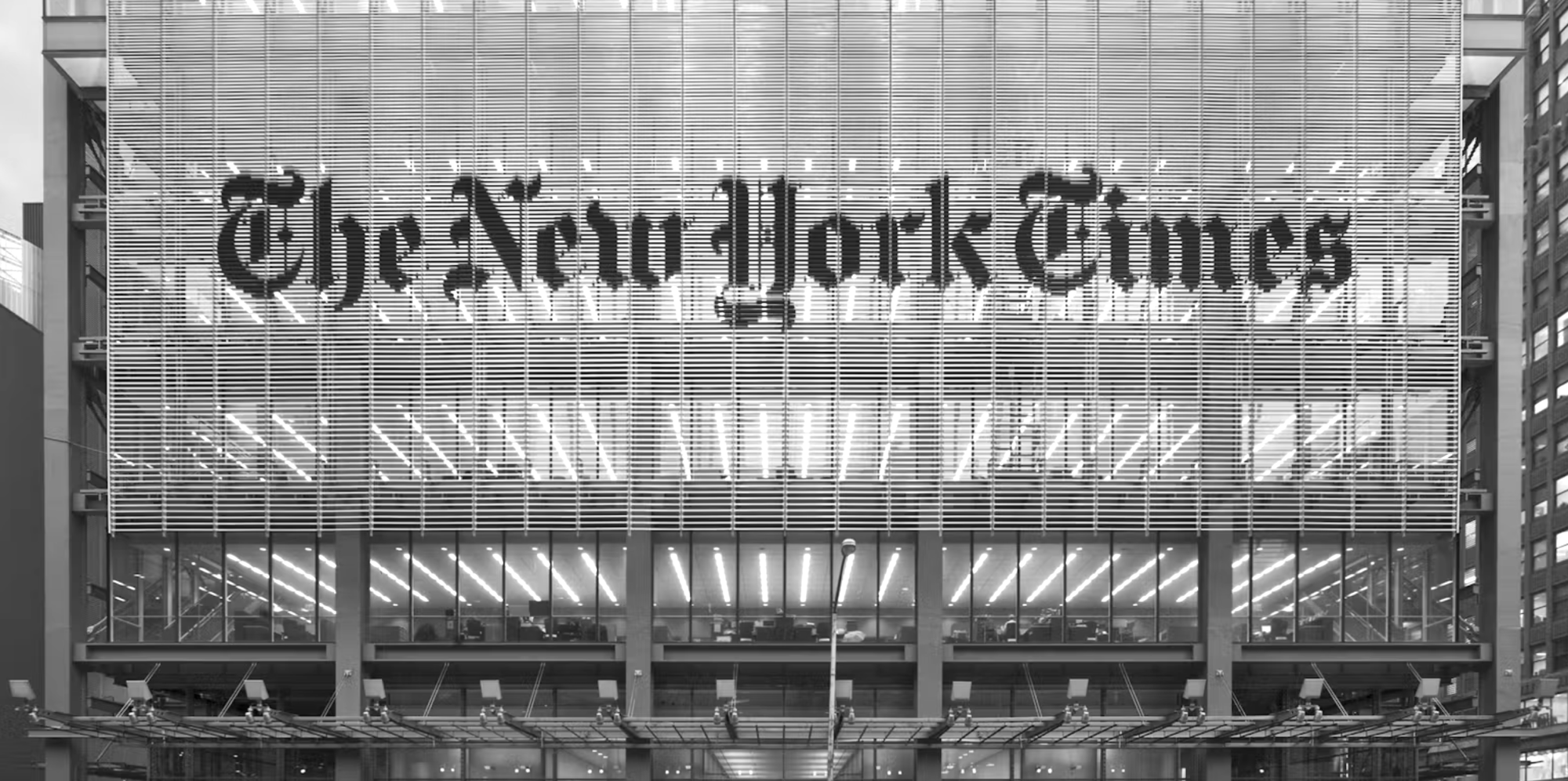Content:

‘Media and Corporate Power Structures See Genuine Democracy as a Terrible Danger’
FAIR
07/11/2025
Janine Jackson: They’re talking about Mamdani, but they’re telling us about themselves, and the values they represent all the time. I’m talking about news media.
So it’s worth taking a second to breathe in this New York Times editorial; I call it the “sniff heard round the world”: “He is a democratic socialist who too often ignores the unavoidable trade-offs of governance.”
There’s just one sentence, but there’s a lot to unpack. The “trade-offs” for good governance: It’s hard to think of a clearer example of media’s transmission of the idea that somehow politics isn’t really for people. So, Jeff, Norman, why would anyone ask why people are disaffected with electoral politics, when this is the smart person’s explanation of how they work?
Jeff Cohen: It’s pretty revealing when you look at New York Times editorials, because I think middle-of-the-road news consumers, liberal news consumers, they know not to trust Fox News, owned by Rupert Murdoch, or Murdoch’s New York Post. People understand that’s right-wing propaganda.
The moment we’re in, Janine, as you’re suggesting, it’s a teachable moment. Now people are realizing you can’t trust the New York Times, either. You can’t trust these corporate centrist news outlets.
You bring up a Times editorial. Last August, the Times said that they were no longer going to make endorsements in local or state races, but eight days before this primary election, they wrote an editorial that you would’ve thought they wrote so that the billionaires who were funding Cuomo, with this dark money Super PAC known as Fix the City, that was funded by Michael Bloomberg, it was funded by DoorDash, it was funded by Bill Ackman, the hedge fund guy….
It’s almost like the New York Times wrote an editorial attacking Mamdani, after they said they would no longer be making endorsements in local races, it’s almost like they were writing it so they could provide ad copy to Fix the City and attack ads.
And I watched the NBA, the pro basketball playoffs, on WABC, channel 7 New York City, and they kept quoting the editorial in the attack ads against Zohran Mamdani. And one of the quotes was, “He’s got an agenda uniquely unsuited to the city’s challenges.” Another quote, “He shows little concern about the disorder of the past decade.” And then, “We do not believe Mr. Mamdani deserves a spot on New Yorker’s ballots.” So you had quote after quote.
When the editorial writers of the New York Times are writing an attack on a mayoral candidate like Zohran Mamdani, and they know that there’s a dark money PAC that’s spending millions of dollars to attack him—basically, they were writing copy. And every time a coach during the NBA playoffs called a timeout, I cringed, because I knew there’d be another attack ad that I’d be watching against Mamdani.
Norman Solomon: To get into the sports metaphor, in the news department, they’re supposed to be referees; they don’t have their hands on the scale. They’re simply reporting the news. But the tonality of coverage, not just in the New York Times, but elite media generally, has been skeptical to alarmed to setting off the sirens that something terrible might be about to happen if the New York City voters don’t wake up.
And when the New York Times editorials talk about something like trade-offs, what they mean is that there is a transactional world that they believe is about democracy, or should be, their version of democracy. I recalled the statement from the first Supreme Court Chief Justice John Jay, who said, “Those who own the country ought to govern it.” And that’s really the tacit assumption and belief from the huge media that, after all, have billions of dollars in assets. That’s what they are accustomed to trying to look out for and protect. I think it’s notable that there’s a long pattern, I mean this has been going for decades.
And, again, we’re talking about Fox Newsand so forth, we’re talking about the New York Times, and in its editorials, the wisdom of its handpicked and, we’re told, very well-informed, erudite editorial board—-a few years ago when Bernie Sanderswas surging in the primaries, and it looked like he might be the Democratic presidential nominee, the New York Timeswent into overdrive of alarm. They published a very big editorial saying Bernie Sanders is just not qualified to be president. He’s dangerous. These socialistic ideas just won’t work.
And after that, years went by, and the New York Times ran a huge editorial about how horrible it is that there’s so much income inequality in the United States, and it’s getting worse and worse, the gap between the very wealthy and the middle class and the poor.
And I think that is really a replica of the split screen approach of the New York Times and the media establishment, which is, on the one hand, to make sure that progressive candidates don’t get very far, if they have anything to say about it as news media outlets. And on the other hand, it’s sort of victims without victimizers, the moaning that there’s poverty and there’s income inequality that’s become so extreme, but there are no victimizers, and certainly Wall Street should be protected rather than attacked.